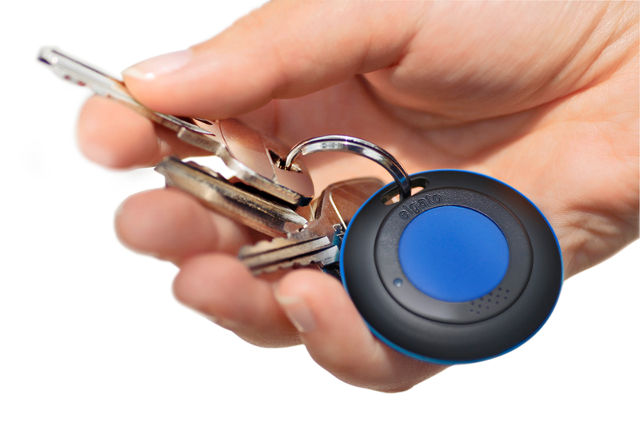Jonathan Dodd’s latest column. Guest opinion articles do not necessarily reflect the views of the publication. Ed
I try not to lose things. Part of my image of myself is that I’m a person who puts things in the same place, or at least remembers where I put things so I can find them again. I’m not sure how successful I am at this, because if I was a person who lost things and was also a bit forgetful, would I even remember when I lost stuff?
I do cheat, of course. I tend to put things in the same place all the time, so I don’t have to waste time finding them and I don’t get bad-tempered because something is missing or because someone moved it. I know people who don’t do this, and I spend a lot of time helping them locate their car keys or wallets, and listening to their cries of anguish, before finding the missing thing in a relatively obvious place.
The finding bone gets lost along the way
I’m familiar (mercifully not recently) with the inability of teenagers to find things. I used to watch them. They’d go into a room and stand there, looking ahead with their unfocused eyes, and after a few moments they’d call out – “I can’t find it!” This used to drive me mad, and any mention of it would be to light a very short fuse. I used to tell them that their ‘finding bone’ hadn’t fully developed yet. Sometimes the finding bone gets lost along the way.
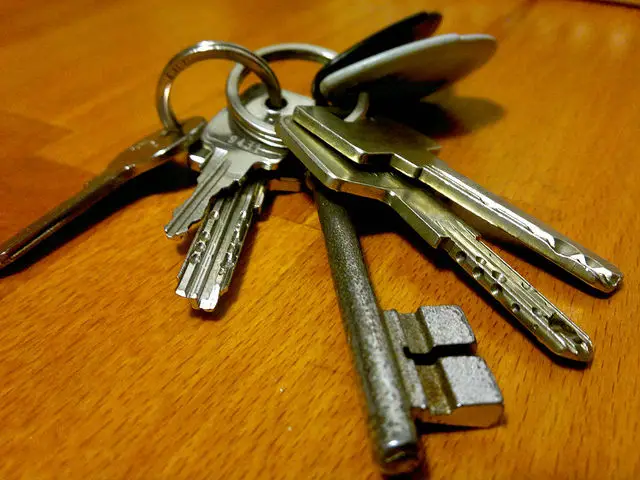
I just remembered a present I was given more years ago than I care to count. It was a ‘key finder’, in the form of a small tab that clipped on my keyring, and if I clapped it would beep at me. I never really needed it, and I’ve always tried to minimise my keys so they’ll fit into my pocket, after an unfortunate incident in which a particularly large collection of keys, including one of those large old-fashioned ones with a sharp edge, ripped the pockets out of a favourite pair of trousers. So I stopped using my key finder, and then the battery ran out, and it got lost itself.
Beeping at inopportune moments
I thought at that time that I might be able to attach the key finder to one or other of the children, but I knew I would only be able to attach it to their clothes, and they’d lose it immediately, or it would be ruined in the washing machine. Nowadays I suppose you could just attach your key finder to someone’s piercing, but they would probably not be pleased if it kept beeping at inopportune moments.
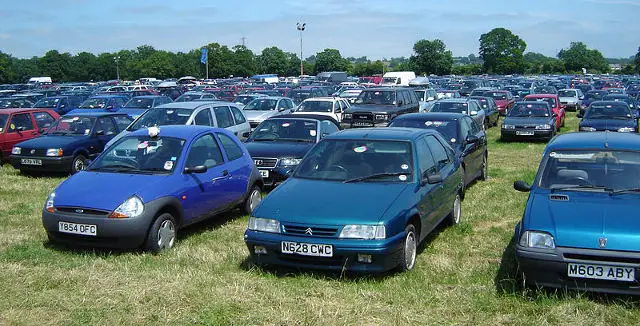
Now we have the Internet, and we’ve got the IoT, or ‘Internet of Things’, coming. This will remove the need for anyone to have such an old-fashioned thing as a key finder. Recently I was working at a car company that was developing apps for your phone that can show you not only where you parked your car, but where you are yourself and how to make your way towards it. Presumably when we have driverless cars, they will come to us instead.
New inventions change our behaviour and our natures
Attaching GPS to everything will make it much easier for people who constantly lose things. They won’t even have to look, they’ll be able to find anything, just by summoning it via their phone. And nobody, not even the most forgetful person, ever loses their phone. I used to wonder at this, but nowadays I’ve noticed that phones aren’t ever put down. I don’t know how we even survived without them.
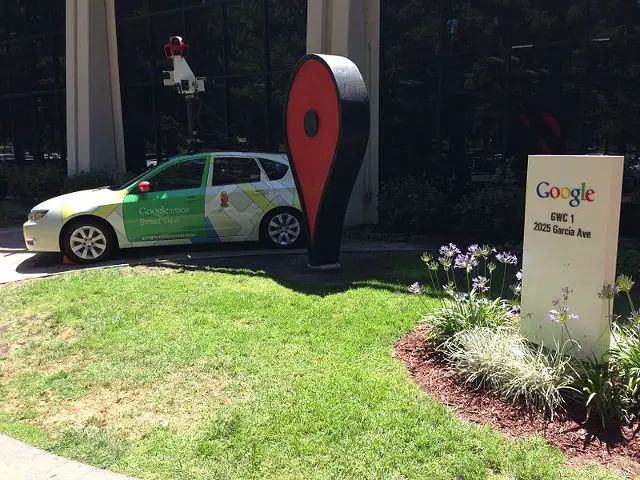
I’m not trying to say that mobile phones are a bad thing. I’m a great admirer of them. What interests me is the way that new inventions change our behaviour and our natures, because we adapt new inventions to work in ways that the inventors never imagined. The same car company was developing a way for a car owner to track its whereabouts, say if it was borrowed by one of their children. Various areas could be defined that were allowed or prohibited, and the phone would let the owner know if these rules had been breached.
A very short walk from romance to tyranny
This is the same technology that’s supposed to restrict the movements of released prisoners through those anklets they’re supposed to wear. Who would have thought it would be used to check the behaviour of newly-qualified drivers for insurance purposes, or allow anxious fathers to know the whereabouts of their sons or daughters on evenings out?
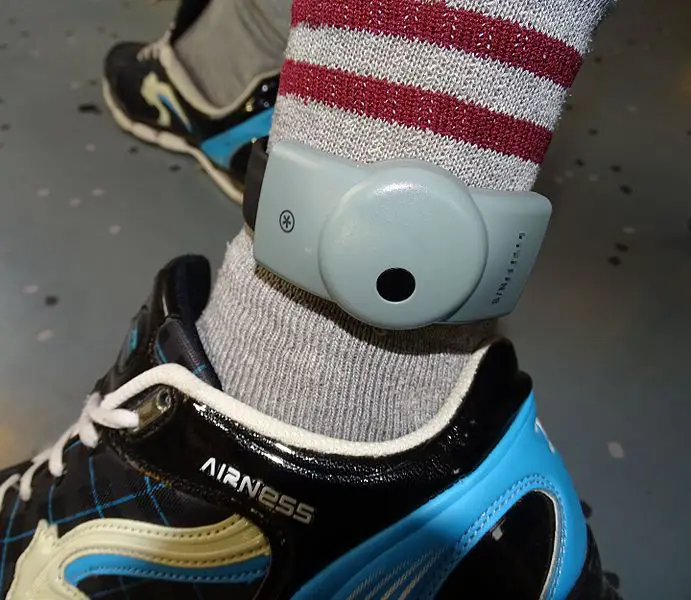
I’ve heard of couples keeping track of each other via their phones and GPS, so they always know where their partner is. If your partner asks you to do this, should you agree, or refuse? If you refuse, will your partner think you’re trying to hide something from them? That’s something of a minefield. It can be a very short walk from romance to tyranny.
I’d like to suggest an alternative economic model
I’m looking forward to a time when everything we own will be able to maintain itself or report any problems and get itself fixed or replaced, maybe even without needing to tell us about it. Except for the bills at the end of the month, maybe. What I’m wondering about is the effect on us as people when we no longer have to think about these things, and whether there are going to be any jobs left for us to do so we can be paid enough to keep all this going.
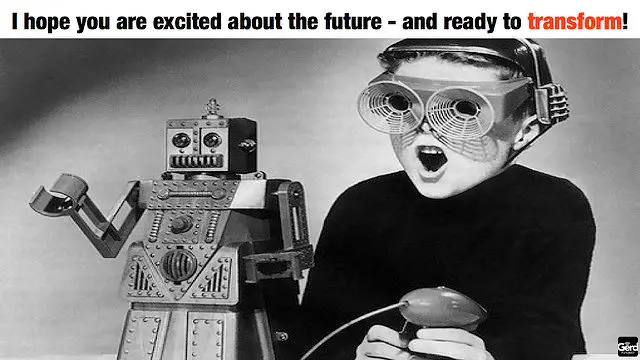
We’re heading towards a time when technology will be doing most of the work, and hardly anyone will be able to afford to buy it, because there won’t be much actual work. Perhaps we need to change the way we think about work and money. I’d like to suggest an alternative economic model to the one we’ve used for so long, which is working less and less well as every day goes by.
Because they’re not doing it for the money
My idea is that we should disconnect the labour from the means of production. Forget all those old notions of progress through hard work and jobs for everyone and from those according to their abilities and to those according to their needs. All we have to do is to give everyone enough money to live on and let them work if they want to, if they can find any.

In this way, we can carry on producing new technology in an ever-more creative and efficient way, making more things and systems that allow everyone to do less and less, while at the same time everyone will be able to afford all those new things whether they work or not. People will love their work because they’re not doing it for the money, and nobody will be able to complain about having to do dreary labour all day long for very low wages.
Nobody would be criticised for not working
Obviously there will still be some very rich people, because the rich will always be with us, and there will be those who squander their money on the wrong things. We have all that now, so it wouldn’t make any difference. We’d have a kind of utopia, where nobody would need to work, they wouldn’t be criticised for not working, and everyone would be able to afford new things. At the same time, production and inventiveness would continue to grow, and any new problems that arise would soon be dealt with by more technology.
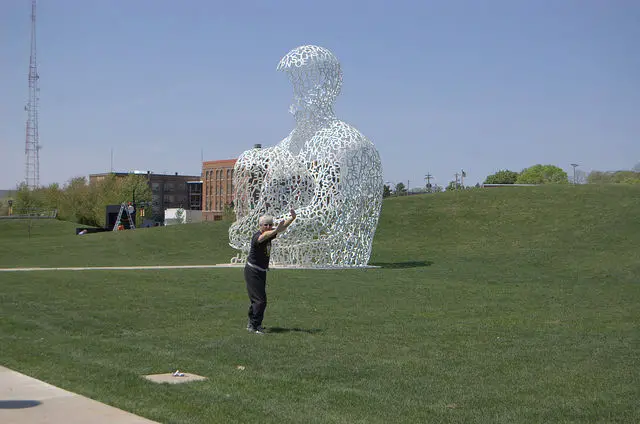
I can’t see why we shouldn’t be doing this right now. It makes complete sense to me. I have to admit, though, to one small misgiving. What would a society look like where everyone was free to do what they want with their time? How would people cope with having no obligations and endless pitiless free will? I have no trouble imagining lots of people being able finally to do those things they’ve never had the time or opportunity to do, and feeling liberated, but I worry about those whose lives are currently constrained by the things they’re forced to do or the things they try to get away with. How will they react?
We might settle down to using freedom responsibly
I like the old idea about the chocolate factory. New recruits would be told they could eat all the chocolate they wanted while at work. Most would gorge themselves in the first week or two, but they’d soon get bored with it or make themselves sick, and they’d stop thinking about chocolate as a treat and just get on with the work. Perhaps freedom is like that. We would go a bit mad at first and misuse it terribly, but then we might settle down to using freedom responsibly. That’s a thing I really would like to try.

On the other hand, some of us would still keep losing our keys or our minds. But by then technology would be able to fix all that.
If you have been, thank you for reading this.
Image: Elgato under CC BY 2.0
Image: pixishared under CC BY 2.0
Image: Paul Holloway under CC BY 2.0
Image: Runner1928
under CC BY 2.0
Image: Jeremy-Gunther-Heinz Jahnick under CC BY 2.0
Image: gleonhard under CC BY 2.0
Image: Mhrobots under CC BY 2.0
Image: Mark Hesseltine under CC BY 2.0
Image: NMB – Sammlung Stiftung Robert under CC BY 2.0

